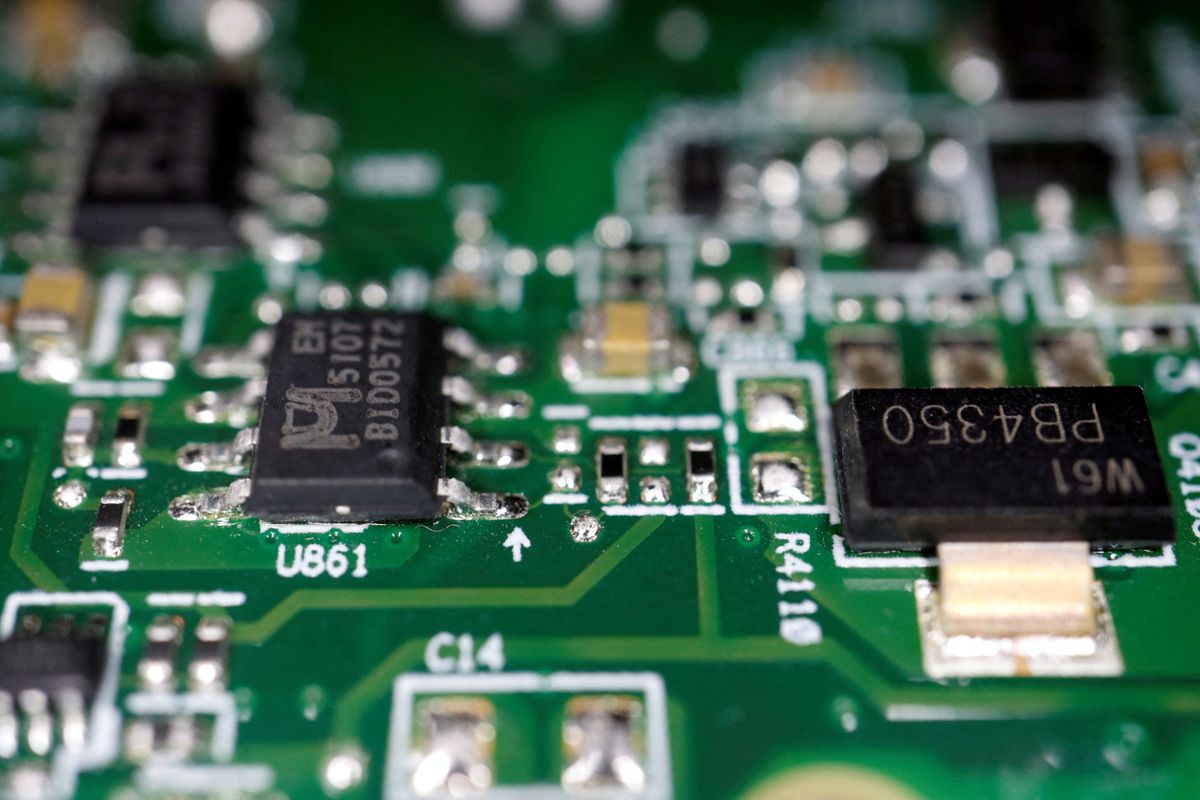Canon launches advanced chipmaking machines to challenge ASML
These machines can create circuits that are just as good as those 5 nanometers created with EUV tech.

A few minutes every morning is all you need.
Stay up to date on the world's Headlines and Human Stories. It's fun, it's factual, it's fluff-free.
The backstory: Canon is a Japanese technology heavyweight that's been in the imaging and optical products game since the 1930s. It’s well known for its cameras, printers, photocopiers and pro-grade lenses, making it a big player in the industry with a global presence. It also makes semiconductor manufacturing equipment.
While Canon has traditionally focused on simpler technologies, its entry into the world of nanoimprint lithography began in 2014 when it acquired Molecular Imprints. This enabled Canon to integrate Molecular Imprints' expertise and technology into its semiconductor manufacturing initiatives. And now, Canon is working on its first new lithography equipment plant in two decades.
Now, let's talk tech. Ever heard of extreme ultraviolet lithography (EUV)? It's a technology used in making advanced computer chips. EUV lithography uses ultra-short-wavelength light in the EUV range to create detailed designs on silicon wafers. It's the key to producing faster and more powerful microchips that run our gadgets – and it’s also the most expensive step in the process.
The only company really in the world that makes this kind of tech is Dutch giant ASML. And EUV is the only tech that can create chips of 5 nanometers and below – which are needed for the most advanced applications.
More recently: The US and China have been in a heated tech race, with both actively working to make advancements and dominate the technology sector. But things have gotten tense recently, with the US imposing strict export restrictions on advanced chips and chipmaking equipment to Chinese companies, citing national security risks. Other countries with strong chip industries, like the Netherlands and Japan, soon followed suit with similar restrictions on China.
The development: Canon just introduced its nanoimprint semiconductor manufacturing systems, pitching it as a simpler and more accessible alternative to the high-tech tools usually seen in the industry. These machines can create circuits that are just as good as those 5 nanometers created with EUV tech. The company said it also expects to reach next-gen 2-nanometer production as it makes more improvements.
This could be a game-changer in the semiconductor race. Canon's new machinery might even throw a curveball into the US-China tech tension. Since China hasn't been allowed to import EUV machines due to trade restrictions, this may allow the country to work on advanced chips using an alternative method.
Key comments:
"China firmly opposes the U.S.'s overstretching of the national security concept and abuse of export control measures to wantonly hobble Chinese enterprises," said spokesperson Liu Pengyu regarding the notification from the US to China about updating the export restrictions imposed last year.
“There will be pressure on the U.S. to reconsider its export controls strategy, which was based on the assumption that controls would prevent Chinese companies from producing advanced-edge chips, while the business-as-usual approach would continue at the trailing-edge nodes. It is increasingly becoming clear that this distinction doesn’t work in reality,” said Pranay Kotasthane, deputy director of the Takshashila Institution.
"We seek a healthy economic relationship with China: one that fosters growth and innovation in both countries," said a senior Treasury official back in July about US Treasury Secretary Janet Yellen’s visit to Beijing.




Comments ()